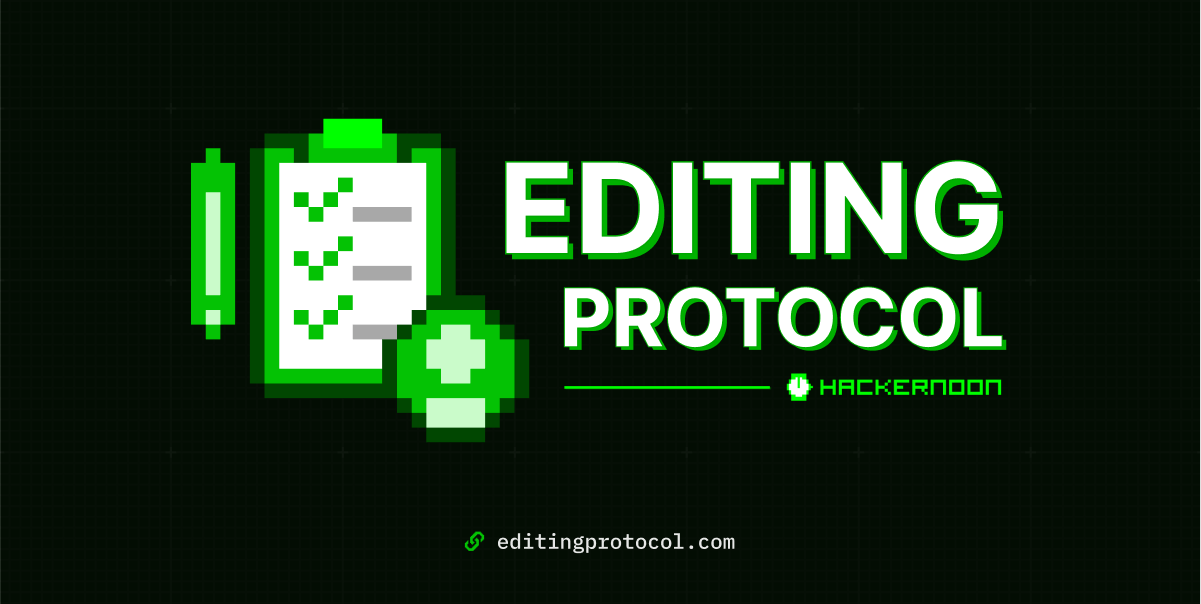Learn More at EditingProtocol.com, where the HackerNoon CMS powers the most up-to-date technical documentation about The Editing Protocol
What is The Editing Protocol?
One of the world leaders in online publishing, HackerNoon is home to over 45,000 published contributors. As a startup, the company was tasked with reviewing thousands of submissions a month with just a small team of editors. To do that, HackerNoon created a set of preliminary checks, rules, and quality guidelines that determine whether or not a story can be published, or should be rejected. This document was dubbed The Editing Protocol and can be read by humans to guide publishing at scale.
“In publishing a hundred thousand stories, we’ve learned best practices for how to improve and distribute professional technology content on the internet,” said
HackerNoon Creator and CEO David Smooke .
“I’m excited to open up this technical documentation for feedback, and continue integrating the most cutting-edge technologies into the Editing Protocol.”
To elevate the quality of published content, and optimize the user experience for contributors and readers alike, the editing protocol incorporates several inventive technologies, such as:
- An AI-powered (GPT-4) headline generator.
- AI image generator models like Stable Diffusion XL, Stable Diffusion v2.1, Stable Diffusion v2.0, Stable Diffusion v1.5, Midjourney Diffusion, Kandinsky 2.2, and Kandinsky 2.1.
- AI-generated content detection.
- AI text translator.
- AI TLDR generator.
- Plagiarism checker.
- Backlink checker bots.
The protocol’s guidelines are rule-based and can be easily converted into conditional statements. Once programmed, the protocol can allow human editors to focus on the quality and improvement of publishable stories, while the system automatically informs writers of what rule they have broken, or guidelines they have missed. With The Editing Protocol, small teams can publish content at scale, using both human editors and rule-based flagging systems to provide an efficient publishing process.
HackerNoon has already programmed a lot of the protocol into the custom CMS the company has built from the ground up. For instance, submissions that are below the minimum structural quality measure are automatically rejected, and writers are sent an email specifically stating how to improve the story they hope to publish before resubmitting.
Furthermore, there is a section in the protocol that highlights the importance of
HackerNoon believes the protocol will not only guide human editors to better vet stories, but also help developers automate the tedious workflows within the traditional editorial review process.
How to Use The Editing Protocol
The full protocol can be viewed via
With The Editing Protocol, HackerNoon aims to help make the internet better by getting rid of the noise—low-quality self-published articles, spammy content riddled with even spammier links, and a horde of other bad SEO practices that prioritize clicks at the expense of quality.
As the Internet changes with

